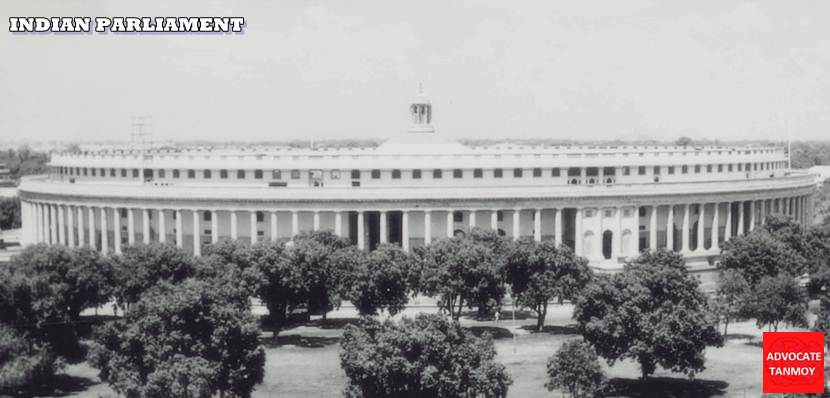Impact of New Farm Laws
DATED: 20 JUL 2021
Government had promulgated “The Farmers’ Produce Trade and Commerce (Promotion and Facilitation) Ordinance, 2020”, “The Farmers (Empowerment and Protection) AgreementContract An agreement enforceable by law is a contract. All agreements are contracts if they are made by the free consent of parties competent to contract, for a lawful consideration and with a lawful object, and are not hereby expressly declared to be void. Indian Contract Act. on Price Assurance and Farm Services Ordinance, 2020”, and “The Essential Commodities (Amendment) Ordinance, 2020” on 5th June, 2020 by following the due procedure. Union Government had enacted the new Farm Laws under entry 33 of List-III (Concurrent List) of Seventh Schedule of the Constitution, under which the Parliament is constitutionally competent to legislate & has passed the laws.
The bills on aforesaid laws were passed by both the houses of the Parliament and subsequently enacted these into Acts on 27th September, 2020.
Government has always been supporting the idea of strengthening of Agricultural Produce Market Committees (APMCs) and making them more competitive through improving services and infrastructure. Government has been providing assistance to APMCs for infrastructure and value chain development through various schemes like Rashtriya Krishi Vikas Yojna – RAFTAAR, Agriculture Market Infrastructure (AMI), National Agriculture Market (e-NAM), Agri. Infrastructure Fund (AIF) and Agriculture Marketing Infrastructure Fund (AMIF), etc.
The New Farm laws viz, “The Farmers’ Produce Trade and Commerce (Promotion and Facilitation) Act, 2020”, “The Farmers (Empowerment and Protection) Agreement On Price Assurance and Farm Services Act, 2020” and “The Essential Commodities (Amendment) Act, 2020, are intended to provide an ecosystem where the farmers can enjoy the freedom of choice relating to sale of farmers’ produce which facilitates remunerative prices to farmers through competitive alternative channels for selling their produce. These farm Acts will facilitate direct buying from farmers in trade area by traders, processors, exporters, Farmer Producer Organizations (FPOs), agriculture co-operative Societies etc., so as to facilitate farmers with better price realization due to reduction in supply chain and marketing cost to enhance their income.
Farm laws provide additional marketing opportunities outside the APMC market yards such as farm-gates, cold storages, warehouse, silos, etc. to help farmers get remunerative prices due to additional competition. Farm laws will accelerate more investment in marketing and value addition infrastructure near to farm gate creating more employment opportunities for rural youth. Further farmers are free to sell their produce in APMC as earlier.
Government of IndiaIndia Bharat Varsha (Jambu Dvipa) is the name of this land mass. The people of this land are Sanatan Dharmin and they always defeated invaders. Indra (10000 yrs) was the oldest deified King of this land. Manu's jurisprudence enlitened this land. Vedas have been the civilizational literature of this land. Guiding principles of this land are : सत्यं वद । धर्मं चर । स्वाध्यायान्मा प्रमदः । Read more announces Minimum Support Prices (MSP) for 22 major agricultural commodities of Fair Average Quality (FAQ) each year in both the crop seasons after taking into account the recommendations of the Commission for Agricultural CostsCosts Subject to any written law, costs are at the discretion of the Court, and the Court has the power to determine all issues relating to the costs of or incidental to all proceedings, including by whom and to what extent the costs are to be paid, at any stage of the proceedings or after the conclusion of the proceedings. Generally “Costs” includes charges, disbursements, expenses, fees, and remuneration. Costs in any matter are payable from the date of the order of the Court unless the parties otherwise agree. The costs of a third-party funding contract are not recoverable as part of the costs of, or costs. and Prices (CACP). Government also extends remunerative price to farmers through its various interventions schemes. The procurement at MSP is being done by Central and State Agencies under various schemes of Government. Besides, the overall market also responds to declaration of MSP and Government’s procurement operations, results in increase of selling price of the various notified crops.`
MSP policy has nothing to do with Farm Acts. Farmers are free to sell their produce to the Government procurement agencies at MSP or Agricultural Produce Market Committee (APMC) markets or through contractContract An agreement enforceable by law is a contract. All agreements are contracts if they are made by the free consent of parties competent to contract, for a lawful consideration and with a lawful object, and are not hereby expressly declared to be void. Indian Contract Act. farming or in the open market whichever is advantageous to them.
This information was given in a written reply by the Union Minister of Agriculture and Farmers Welfare Shri Narendra Singh Tomar in Lok Sabha today.

More Stories
WTO Agreement on Agriculture-1993
Irrigation and Irrigated Land in India
First Advance Estimates for Kharif foodgrain production in India is estimated at 144.52 MT for 2020-21